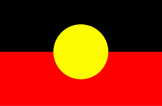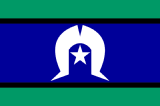A huge delegation of foster and kinship carers as well as workers in care services, arrived in Hobart for the National Foster and Kinship Care Conference in Tasmania with Foster and Kinship Carers Association of Tasmania. Over three days in September each took part in sharing and learning about the needs, rights and voices of children and young people in care and their carers, from around the country.
Keynote speaker, Anne Hollonds, National Children’s Commissioner, opened the Conference. She asked for the commonwealth to draw jurisdictions together to form a bi-partisan, multi sectoral National Roadmap for reform on critical issues of child wellbeing across social services including, health, education, child protection, justice and support scaffolding for carers.
“We don’t have a knowledge problem, we have a doing problem.”
“Foster and kinship carers are just holding on by a thread financially and with other supports for complex needs. Kinship, formal and informal, foster care is the same kids with the same needs. We need to support all care arrangements and acknowledge that whatever the status of the order, more support is needed across the board for the people carrying those needs.”
She outlined the themes for the Conference and large among them was mental health and it's impact on carers.
Tessa Hughes, Care Support Team Manager at FCAV, delivered a presentation on the FCAV's Victorian Carer Assistance Program, a unique model of therapeutic support for carers that targets a neglected area of support; the mental health and wellbeing of people providing care who are experiencing the complexity of loss, grief, vicarious trauma and ways to build resilience in the role. Read more about the CAP here.
Victorian foster carer, Natalie Pryor spoke in a plenary to a huge crowd of carers. As a dancer, board director, teacher, business woman and above all, foster carer, Natalie Pryor realised a short time into her and her husband’s foster care journey that she had found her “tribe” and couldn’t sleep at night until she had found a way to connect carers with the most invaluable resource they have; each other. To that end, Natalie has developed a full website and peer support portal for all carers. You can connect here with Foster Care Connect.
Monika Scott manages 100 foster carers and 140 children and young people through Kennerley Children's Homes inc. here in Tasmania. She spoke to a packed room at the conference about carer altruism and self-care. The psychological impact of the desire to relieve the suffering of others and selfless giving can turn into self sacrifice. When compassion fatigue is “drowning in empathy” - a fear response - it can impact carers’ ability to provide care to children and young people. Barriers to self care include - time, practical barriers, emotional, financial, lack of knowledge and energy. Monika advocates for 10 minutes a day. Just 10 minutes a day as a practice is habit forming and can lead to positive change.
David Bradford from the Bradford Institute of Advanced Education and Fiona Endacott, CEO of Connecting Foster & Kinship Carers - SA Inc presented on the South Australian full diploma program, free for carers and catered to their needs with a 98% successful graduation rate for the 120 participants so far.
Graduate and Carer, Felicity Bryan, spoke about obtaining the diploma, gaining employment as a foster care case worker and how the process of studying and owning the language has elevated her ability to self advocate and pass on her knowledge as a Carer.
A partnership with CF&KC-SA and the Bradford Institute to develop the diploma course in out of home care specifically for carers, came about to capitalise on carers’ lived experience and enhance carers’ employment and caring roles as well as adding to the much needed workforce.
The course has had many indirect benefits too such as carer peer support and young people emulating the study habits of their carers. The Diploma is available and subsidised in most states around Australia with the exception of WA and Victoria.
So far, Bradford Institute has met with barriers in Victoria including a resistance by Government to a private training organisation in the context of free TAFE provisions in the state. FCAV will be pursuing advocacy channels for access to this program for Victorian carers.
Mental health and wellbeing has been a focus of many sessions at the National Foster and Kinship Care Conference in Tasmania. Closing out the conference this afternoon drawing on her research through Emerging Minds Australia, Helen Francis, outlined the national framework for child-focused mental health, wellbeing and relationships that are critical to building the confidence of parents and carers in their part in children’s mental well-being. “We’ve got very good at removing children from risk, but we haven’t got very good at removing risk from children.” It is the work of generations to create nurturing relationships for our children now, for the adults of tomorrow. Find out more.
Zoe Cummings and Linda Blyth - Key Assets WA presented a grounding set of “tools” that, through art and books help tell the children’s stories, help with transitions for children and young people and for carers and families.
The FCAV delegation gained so much from this year’s National Foster and Kinship Care Conference in Tasmania. Congratulations to Foster and Kinship Carers Association of Tasmania on an amazing conference.
Above: Heidi Buhner, carer (left and below), Megan Sadlier, carer and President of the Board (centre), Janine Voisey, carer (right)





